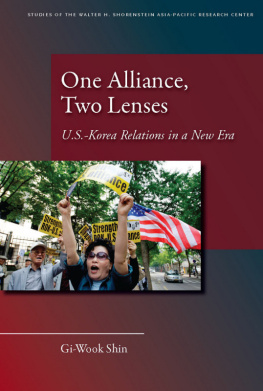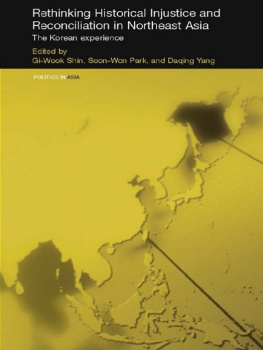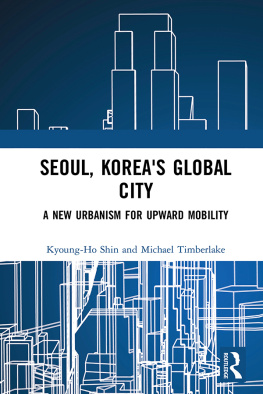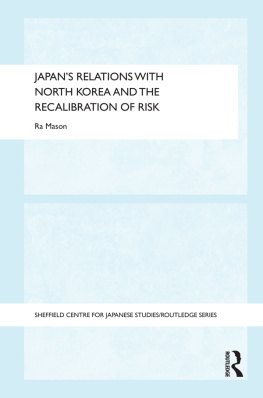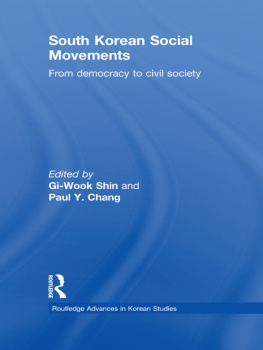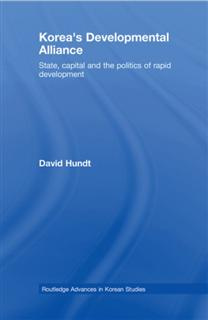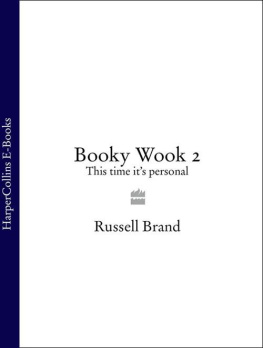Studies of the Walter H. Shorenstein Asia-Pacific Research Center
Andrew G. Walder, General Editor
The Walter H. Shorenstein Asia-Pacific Research Center in the Freeman Spogli Institute for International Studies at Stanford University sponsors interdisciplinary research on the politics, economies, and societies of contemporary Asia. This monograph series features academic and policy-oriented research by Stanford faculty and other scholars associated with the Center.
ALSO PUBLISHED IN THE SHORENSTEIN ASIA-PACIFIC RESEARCH CENTER SERIES
Collective Resistance in China: Why Popular Protests Succeed or Fail
By Yongshun Cai (2010)
The Chinese Cultural Revolution as History
Edited by Joseph W. Esherick, Paul G. Pickowicz, and Andrew G. Walder (2006)
Ethnic Nationalism in Korea: Genealogy, Politics, and Legacy
By Gi-Wook Shin (2006)
Prospects for Peace in South Asia
Edited by Rafiq Dossani and Henry S. Rowen (2005)
Stanford University Press
Stanford, California
2010 by the Board of Trustees of the Leland Stanford Junior University. All rights reserved.
No part of this book may be reproduced or transmitted in any form or by any means, electronic or mechanical, including photocopying and recording, or in any information storage or retrieval system without the prior written permission of Stanford University Press.
This book is published with the generous support of the International Center for Korean Studies, Korea Universitys Center for research, publication, and development in Korean Studies. The International Center for Korean Studies was established in 2003 to support scholarship and exploration of Korea in the humanities and social sciences, and to promote new research in Korean Studies to a wide international audience.
Printed in the United States of America on acid-free, archival-quality paper
Library of Congress Cataloging-in-Publication Data
Shin, Gi-Wook.
One alliance, two lenses : U.S.-Korea relations in a new era / Gi-Wook Shin.
p. cm. (Studies of the Walter H. Shorenstein Asia-Pacific Research Center)
Includes bibliographical references and index.
ISBN 978-0-8047-6368-4 (cloth : alk. paper)
ISBN 978-0-8047-6369-1 (pbk. : alk. paper)
ISBN 978-0-8047-7851-0 (electronic)
1. United StatesForeign relationsKorea (South) 2. Korea (South)Foreign relationsUnited States. 3. United StatesForeign relationsKorea (South)Press coverage. 4. Korea (South)Foreign relationsUnited StatesPress coverage. 5. United StatesForeign relations1989 6. Korea (South)Foreign relations2002 I. Title. II. Series: Studies of the Walter H. Shorenstein Asia-Pacific Research Center.
E183.8.K6S55 2010
327.730519dc22
2009025675
Acknowledgments
Are you ever going back to Korea? This is one of the questions that I have been asked most frequently for the last two decades while teaching in the United States. I usually respond, Well, I could, but I believe I have more things to do here.
This question does not come as a surprise to me, since I came to the United States as a foreign student with every intention to return to Korea following my graduate education. My parents anxiously awaited my return to Korea with my doctorate. When I got my first teaching position at the University of Iowa in 1991 and even when I moved to UCLA a few years later, I still harbored the thought that I would go back to Korea after gaining some teaching and research experiences in American academia. Over the years, however, I have come to the conclusion that I stand to make more of a contribution by staying in the United States. Looking back, it was not an easy decision to make, but it is one that I have not regretted.
Korea is my homeland and the place that I grew up. I have great affection for and pride in this great nation. Korea is also a topic in which I claim professional expertise.
The United States has become my second home. It is the place that has given me educational and professional opportunities and the place that I am raising my children. I am honored to be on the faculty of a great American world-class university, Stanford.
As a Korean American scholar, I have a sense of mission to accomplish: improving the relations of the two countries to which I am most attached. Accordingly, I have been trying to promote a better understanding of Korean affairs and the development of constructive relations between the United States and Korea in both research and praxis. As a scholar of sociology and Korean studies, my primary tasks are research and writing on Korean affairs and the U.S.-Korea relationship. Yet I have also been attempting to facilitate better relations between the two allies by convening conferences (academic and policy) and establishing fellowships that are designed to enhance mutual understanding of the bilateral relationship and to promote networking among experts and policy makers in both countries.
This book is an outcome of my long-standing interests and efforts to better understand U.S.-Korea relations. It examines the bilateral alliance during a period that may very well come to be considered the height of identity politics in South Korea, as well as the policy discord that existed between the two countries. My hope for this work is that it will help enhance understanding of the difficult times that have characterized the bilateral relationship in recent years.
I would not have been able to produce this book without wonderful support from so many people, at Stanford and elsewhere. I have been truly blessed with an enormous pool of talented individuals, who have helped me carry out this project for the last five years. The following four people were particularly instrumental in completing the project in various stages: Kyu S. Hahn (research design and data collection), Jeong-Woo Koo (data analysis), Kristin Burke (research and writing), and Hilary Izatt (editing and publication). Many undergraduate and graduate students at Stanford and in Korea have diligently worked on the tedious task of data coding. They include Eun Sang Hwang, Sung-Jin Lee, David Juan, Susan Lee, Katie Barracloug, Jin Yoon, Joon-Seok Hong, Gloria Kim, Suh-Young Shin, Stella Shin, Young-Joo Kim, and Jung-Eun Lee.
This was such a large project that it took me about two years just to collect and code the data. That would not have been possible without strong financial support. I am very grateful for having received a generous grant from the Korea International Trade Association and would like to thank its chairman, Kim Jaecheol, who saw the merit of the project and had no reservations about it. Support from the Pantech Korean Studies Fund and the Shorenstein Asia-Pacific Research Center Faculty Grant also greatly aided completion of the project. Finally, a grant from the International Center for Korean Studies at Korea University in Seoul helped me to complete the writing of this book.
I have also greatly benefited from valuable comments provided by the following people: Michael Armacost, David Straub, Daniel Sneider, Gil Rozman, Donald Keyser, John Merrill, Young-Kwan Yoon, Jong-Seok Lee, Mary Connor, John G. Fallon, Myoung-Koo Kang, John Ciorciari, Joon-Seok Hong, Joon-Nak Choi, Soo-Kyung Kim, and Seo-Hyun Park. Many of these individuals are my colleagues at the Shorenstein APARC, which offers a wonderful intellectual community that I truly appreciate. I also feel fortunate to have received valuable comments during the study period from those who were directly involved in policy making about the U.S.-ROK relationship on both sides of the Pacific.


